
This article first appeared in our partner site, Independent Arabia
In the village of Luka lies a summer house which was once home to famed author Anton Chekhov. Close to the city of Sumy in north-eastern Ukraine, it was founded in the mid-seventeenth century by Cossacks. Chekhov and his family spent the summers of 1888 and 1889 in the six-room dwelling, which is set on a vast green estate belonging to the Lintvaryov family. They spent idyllic holidays swimming, fishing and rowing in the Psyol river. This was also the place where Chekhov wrote several of his short stories and his play, The Wood Demon.
In 1960, the summer house was converted into a museum to mark the writer’s legacy on the centenary of his birth. It is a small house but memories of it echo in the stories and plays of Chekhov. The time the author spent on the estate is captured by the exhibition commemorating his life in Luka, showcasing the medical assistance he lent to the village’s poor, and his unique works and travels across Ukraine.
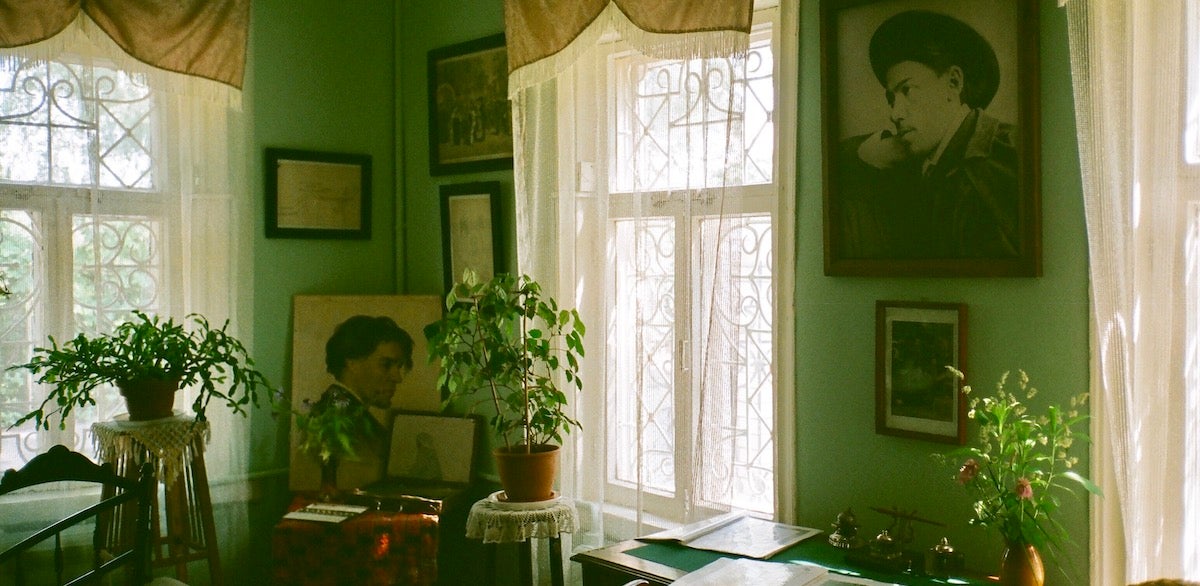
Chekhov was a simple man who despised pretence in all things, most especially in writing. When others would try and sound witty, Chekhov would respond with simple and clear-cut words. This approach captured his beauty of spirit.
In the introduction to the first volume of the Arabic translation of the author’s selected works, translator Abu Bakr Yousef recounts the story of a visit that a teacher once paid Chekhov. Upon getting up to leave, the teacher took Chekhov’s slight hand with its thin fingers in both his own, and, shaking it, said:
“I came to you as though I were going to the authorities, in fear and trembling. I puffed myself out like a turkey-cock. I wanted to show you that I was no ordinary mortal. And now I’m leaving you as a nice, close friend who understands everything. It’s a great thing to understand everything. Thank you. I’m taking away with me a pleasant thought: big men are simpler and more understandable and nearer in soul to us fellow men than all those wretches among whom we live. Good-bye; I will never forget you.”
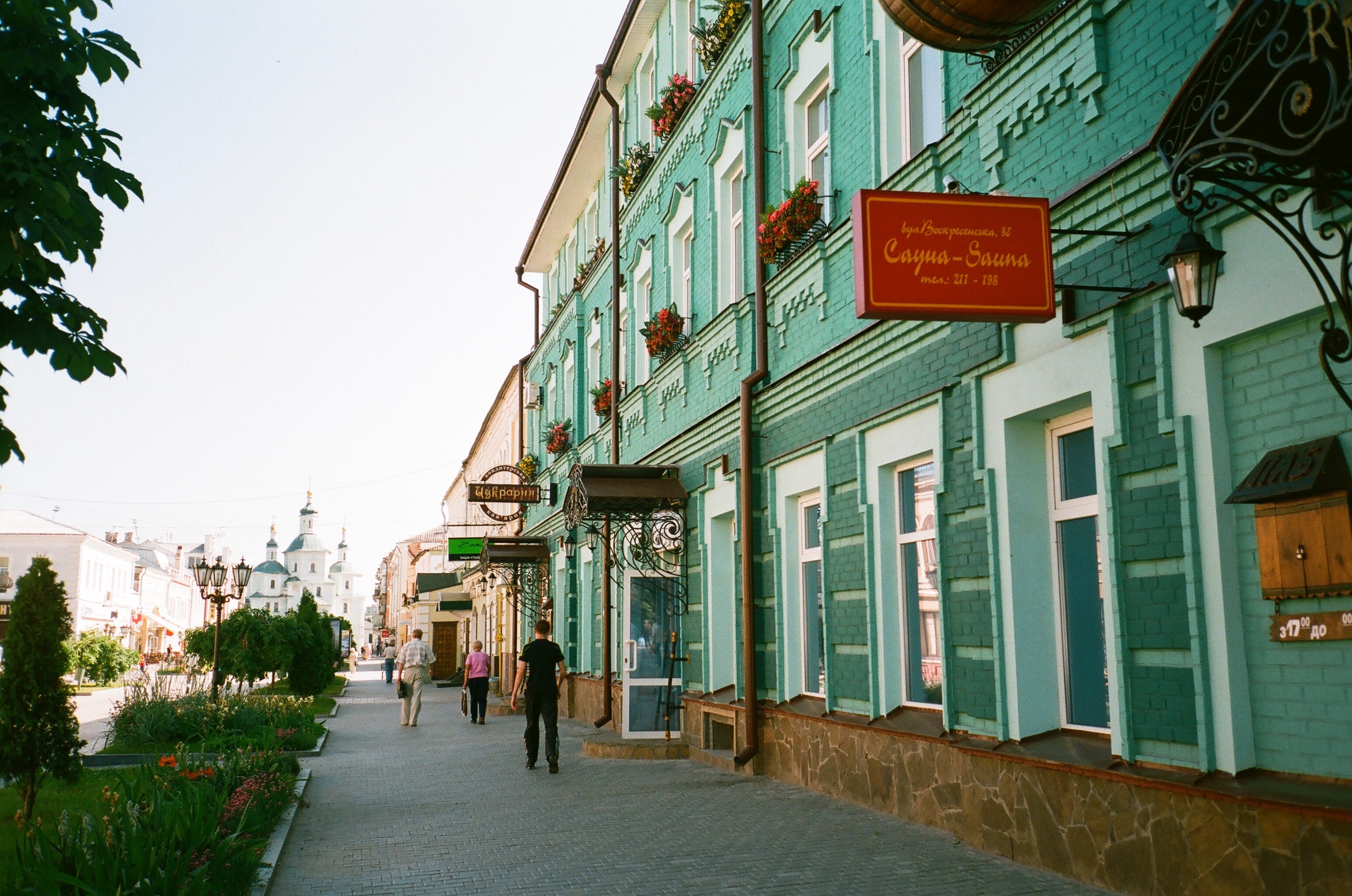
Closed to visitors
Not long ago, when visitors reached the museum, they would have to ring the bell several times and wait until the lady in charge of the place allowed them inside. But right now, she cannot respond to anyone. The museum’s website has announced in bold letters: “It is currently recommended to avoid all travel to Ukraine due to armed conflict and serious safety risks”. The museum is now closed.
One week after Russia’s invasion of Ukraine, author and translator Alison Anderson received a message from one of her acquaintances telling her about the severity of fighting and air raids over Sumy. The city is surrounded by Russian forces, but what makes many people especially worried is Sumy’s cultural heritage, particularly the Chekhov museum, as they hear the sound of clashes coming from the area close to the museum.
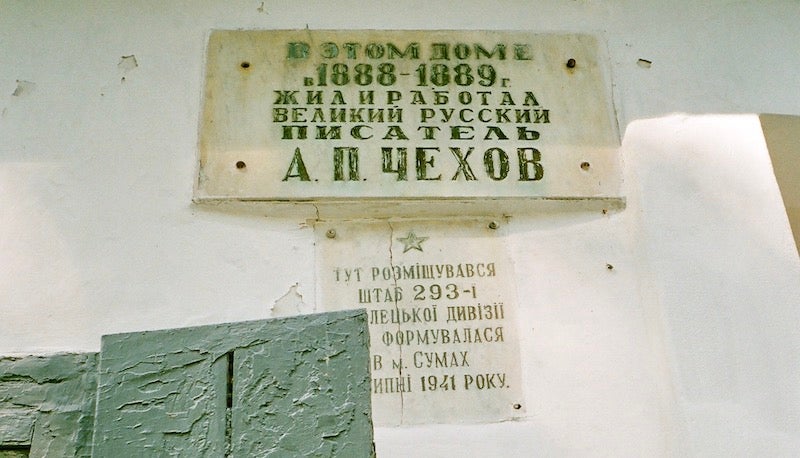
Shortly after receiving the first letter, Anderson got another one from a university professor in Russia who expressed his worry that he was unable to get in touch with the museum directors. This compelled him to contact a fellow Chekhov scholar in Moscow, asking him to raise an urgent appeal concerning the museum to the Ministry of Defence. Many soldiers on the borders of Sumy have undoubtedly studied the works of Chekhov in school.
The house is a small bungalow, located behind a road leading to the river, in a relatively quiet area. Inside its rooms, you are met with precious artifacts donated by the writer’s sister and his widow, including his medical tools, a portrait his brother Nikolay painted of him, and a gardening hat belonging to his sister. Then you reach the house’s garden, planted with irises; and the beautiful porch that overlooks it.
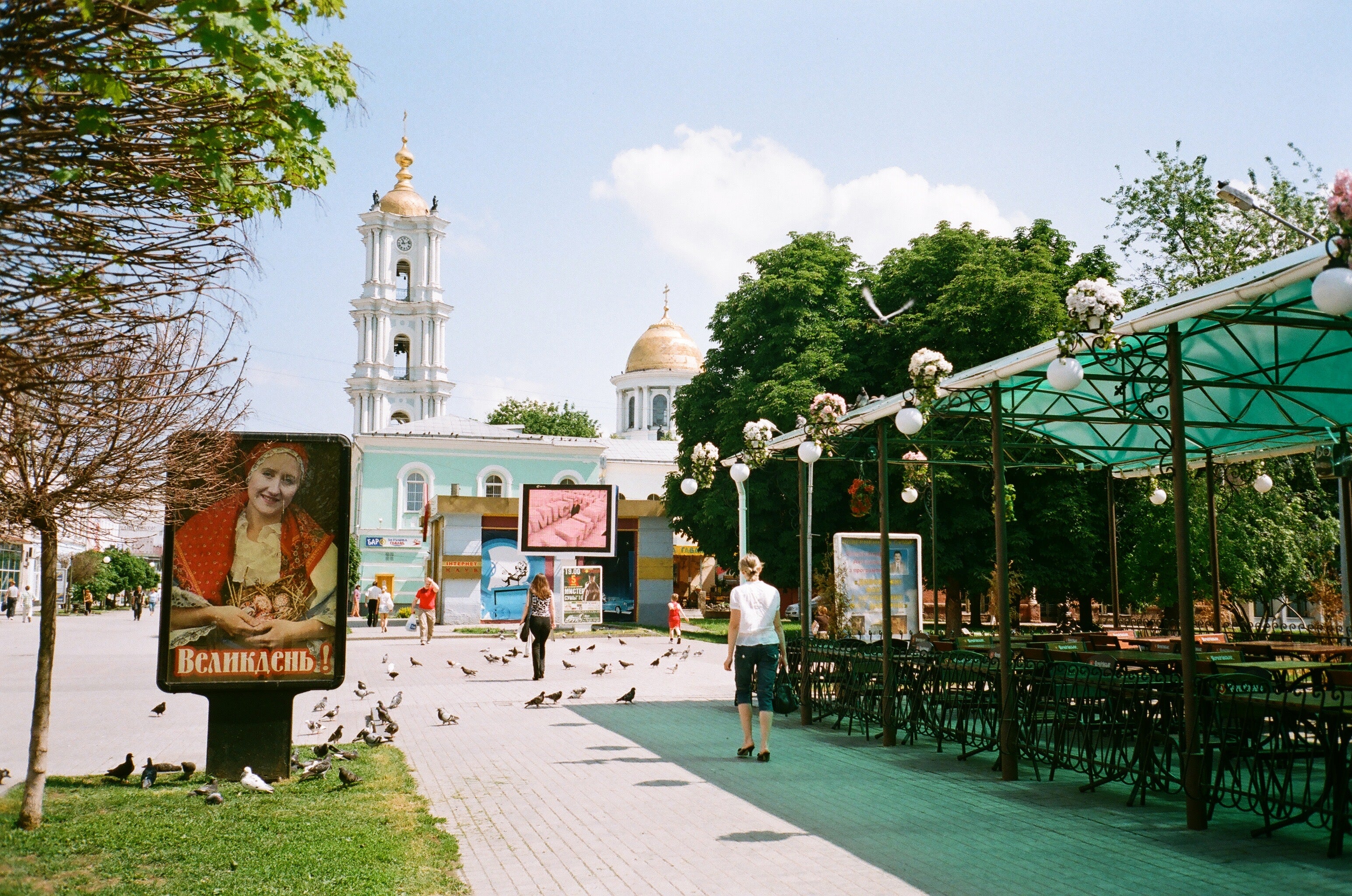
The museum’s exhibition space consists of drawing and dining rooms with reconstructed interiors, Chekhov’s desk and a nook for preparing medicine. The museum’s collection includes personal belongings, first editions of Chekhov’s books, original documents and photographs. A section of the exhibition is dedicated to his brother Nikolay, and includes his original drawings, among other artefacts.
The house of Chekhov
The great author and playwright dreamt about settling in Luka forever but his wish did not materialise. In his letters, he wrote very fondly of the time he spent in Ukraine, then a part of the Russian Empire, noting “Abbacia and the Adriatic Sea are wonderful, but Luka and Psyol are better”.
Chekhov recorded his impressions of Sumy in several stories, among them The Party and A Dreary Story, as well as in his plays The Wood Demon and The Seagull. However, he has another, tragic bond with the place. His brother Nikolay died there in 1889, and was buried in Luka’s cemetery.
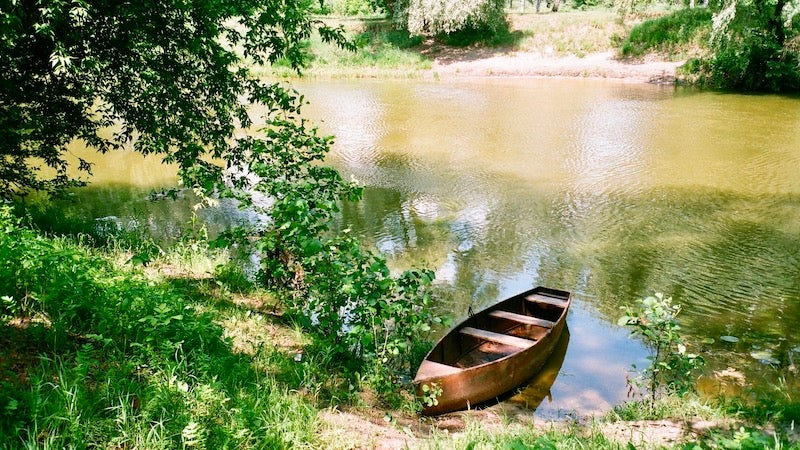
After his return to Moscow in September 1889, Chekhov would never visit Luka again. He wrote in a letter to the Lintvaryov family, “I have left my soul behind in Luka.” In the rest of the letter, he makes light of himself and his words. However, behind his sardonic tone, there is a trace of sadness, humility and extreme sensitivity. Just as the region and its inhabitants were a source of rich inspiration for Chekhov, Sumy is proud to have played an important role in his life. It has continued to celebrate his legacy and in 1960, his house was turned into a museum to honour him as one of the region’s own.
Dispute over the ownership of Chekhov’s literary legacy arose following the dissolution of the former USSR. Despite his renown as a Russian author, Chekhov spent a long time in Ukraine, the homeland of his paternal grandmother Efrosinia Emelianovna. During his childhood, he would listen to Ukrainian folk songs at home. While Russia considers him a quintessential Russian author, Ukraine also celebrates him as a Ukrainian one. Russia protests this, however, citing how he wrote his works in Russian. Tolstoy called Chekhov, “the most Russian of authors”. Although both sides claim Chekhov’s works as their national heritage, neither has been capable of protecting his legacy. This played out in the Chekhov Museum in Yalta, the White Dacha, and the dispute over the responsibility of its upkeep after Crimea became an autonomous republic within Ukraine. The Ministry of Culture’s budget being meagre, a request was made to the Russian government to pay maintenance fees, given that Chekhov was Russian. However, the Russians refused.
The severity of the situation can be measured by the fact that funds to pay for security services ran out in 1999. At one point, former museum director Gennady Shalyugin invited TV cameras to follow him while he gave a tour of the museum with his dog in tow. This prompted a Moscow journalist to pen the headline, “The Nobleman and the Little Dog”, playing on the style of Chekhov’s own titles. When Putin visited the museum with his then Ukrainian counterpart Leonid Kochma on the 4th of May 2003, it seemed the museum was finally about to get the help it needed. However, both presidents simply wrote their thanks and expressed their gratitude in the visitor guest book. Putin gifted the museum a book about handicrafts, and left his visitor card. He did not donate a single rouble.
Reviewed and proofread by Tooba Ali and Celine Assaf
Note: The Independent understands that the museum’s collection, including personal belongings of Chekhov, has been moved for safekeeping to the regional museum in Sumy. Russian forces have withdrawn from Sumy, however the museum’s fate is still uncertain in the shadow of a devastating war.







